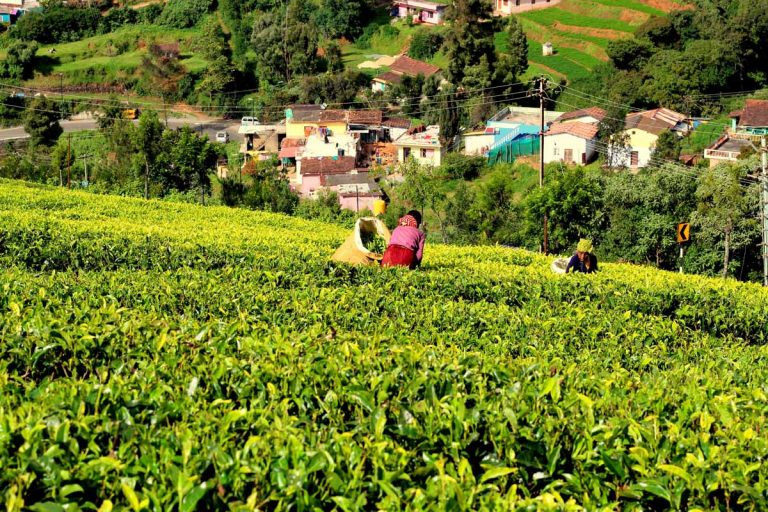22-year-old Indian activist arrested for sharing farmers’ protest ‘toolkit’ with Greta Thunberg

22-year-old Indian climate activist Disha Ravi has been arrested after sharing a document intended to help farmers protest against new agricultural laws. The ‘toolkit’ she shared was initially tweeted by Greta Thunberg and suggests ways of helping the farmers. According to the BBC, police said Disha Ravi was a “key conspirator” in the “formulation and dissemination” of the document. What exactly is happening in India and when did sharing Google Docs become a crime?
What have India's farmers been protesting against?
Since the end of November, 2020, farmers in India have been protesting for the repeal of three new market-friendly laws that would loosen rules around the sale, pricing and storage of farm produce—rules that have protected India’s farmers for decades.
But this is not news; farmers have been on the boil in India for some years now. More than half of Indians work on farms, but farming accounts for barely a sixth of the country’s gross domestic product (GDP). Declining productivity and lack of modernisation have long slowed progress down. As a result, plot sizes are shrinking, and so are incomes from farming.
The protesting farmers, joined by their families and friends, have braved water cannons, tear gas and choked the capital’s borders. They have set up camps, cooked and slept in the open in the bitter cold. And, to some extent, it has worked—in September, a key ally of the government quit in protest against the laws.
For years, farmers have sold their crops in government-regulated wholesale markets across the country. They are run by committees made up of farmers, often large land-owners, and traders or “commission agents” who act as middlemen for brokering sales, organising storage and transport, and even financing deals. While the new reforms allow farmers to rely less on these markets and promise to improve their income, they’re not convinced.
What is clear is that those reforms were poorly conceived. Pushing them during a pandemic without consulting the main stakeholders goes against India’s federalist traditions. Farmers complain of insufficient routes to settle disputes with private buyers in the proposed arrangement. Others wonder how transactions and prices will be tracked in an open market system. In other words, these laws are not supported by sufficient regulation.
Indian agriculture needs deeper structural reforms after consultations with stakeholders and political parties. Even Rihanna got involved, and for a good reason. The farmers’ protests mark the biggest challenge India’s Prime Minister Narendra Modi has faced. His government has offered to suspend the laws but the farmers now want them replaced altogether.
why aren’t we talking about this?! #FarmersProtest https://t.co/obmIlXhK9S
— Rihanna (@rihanna) February 2, 2021
What do we know about Disha Ravi’s arrest?
Disha Ravi, one of the Indian branch founders of the Fridays for Future climate strike, was arrested by Delhi police. In a statement posted on social media on Sunday 14 February, police said she had “collaborated” to “spread disaffection against the Indian State.”
Ravi is said to be the editor of the ‘toolkit’ Google Docs and the police believes she was the one who shared it with Swedish climate activist Greta Thunberg. Police have said the toolkit suggested a conspiracy in the run up to a huge rally on 26 January, which saw protesting farmers clash with police.
“The call was to wage economic, social, cultural and regional war against India,” Delhi Police Special Commissioner Praveer Ranjan said earlier this month. “We have registered a case for spreading disaffection against the government of India—it’s regarding sedition—and disharmony between groups on religious, social and cultural grounds, and criminal conspiracy to give shape to such a plan,” he added.
Officials said Ravi would be held in custody for five days. No formal charges have been announced. Jairam Ramesh, a former minister and lawmaker for the opposition Congress party, called Ravi’s arrest and detention “completely atrocious.” Delhi chief minister Arwind Kejriwal, who has backed the farmers’ protests, called Ravi’s arrest “an unprecedented attack on democracy. Supporting our farmers is not a crime.”
Further raids are being carried out by police as they are looking for two more suspects. Though not named in the police case, Thunberg’s tweet was said to have brought the Delhi police’s attention to the existence of the toolkit. Leaders in the ruling Bharatiya Janata party (BJP) said the toolkit was “evidence of international plans for attacks against India.”





